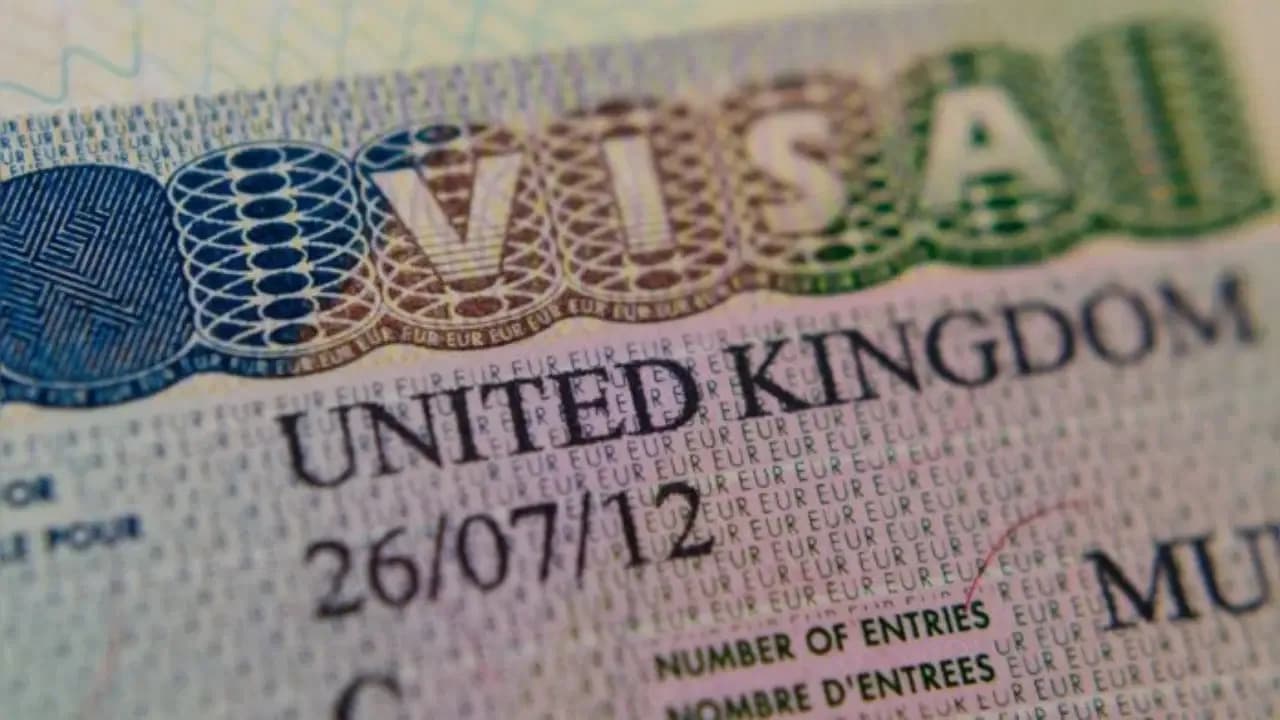
Planning an international adventure to Vietnam is so thrilling but all of us might be wondering: "Do I need a visa to travel to Vietnam?". If you're a traveler outside of Vietnam, especially from the UK/EU, I’m here to answer this tough question.
What is a Visa?
A visa is a document issued by a foreign country that gives you permission to enter, stay, or exit that country for a specific period. It's an essential requirement for many international travelers, including those planning a trip to Vietnam. Each country has different visa policies, so it's crucial to understand the specific requirements for your next destination - Vietnam.

Visa in the UK (source: Deccan Herald)
Do I Need a Visa to Travel to Vietnam?
For travelers from everywhere outside of Vietnam, the duration of your stay will answer the question of whether you need a visa to visit Vietnam. Here's a breakdown of the current regulations:
Visa-Free Travel
If you plan to stay in Vietnam for up to 45 days, you can do so without needing a visa. This applies especially to 13 countries worldwide: the UK, France, Germany, Spain, Italy, Russia, Denmark, Norway, Sweden, Finland, Belarus, Japan, Republic of Korea. Citizens from the UK and EU have an excellent option for short vacations or business trips.
Visa on Arrival (VOA)
Visa on Arrival is a better choice if you want to stay longer or for more flexibility. It’s compulsory for UK and EU travelers to apply for a VOA approval letter through authorized agencies. Don’t forget this because you’ll have to present that letter to the immigration officer at Vietnam’s airports. When you’re at Vietnam, you’ll also need to pay a visa stamp fee in cash (USD) at the selected airport.

Visa on arrival (source: Indonesia Expat)
Visa on Arrival Fee
The visa stamp fee for Visa on Arrival can be different for each nationality as well as the type of visa you're applying for. Here are the fees for the most common visa types that you can refer to.
- Single-entry visa (1-3 months): Around $25 to $50 USD
- Multiple-entry visa (1-3 months): Around $50 to $95 USD
- Multiple-entry visa (6 months): Around $135 USD
- Multiple-entry visa (1 year): Around $165 USD
Remember that these fees might not be fixed, so make sure that you verify the current fees before your trip.
E-Visa
An E-visa is another option to apply for just before your trip. If you’re a careful type of person who doesn’t want any midway errors, I would say this is a perfect choice for you. The e-visa is valid for a single entry only and typically allows for a 30-day stay. The good news is UK and EU travelers are eligible for this option.
Learning about the fees associated with your chosen visa option is an important step in budgeting for your trip. Don’t forget to double-check the current fees and payment methods before applying for your visa to Vietnam.

Example of a E-visa (source: Cetis)
Types of Visa
Traveling to Vietnam couldn’t be easier as there are various types of visas to cater to different purposes of travel. Here are some common ones:
Tourist Visa
This option is Ideal for leisure travelers, which allows you to explore the stunning wonders of Vietnam. Short-term and long-term stays are all available, depending on your needs.
Business Visa
A business visa is the way to go for people who need to travel for work or business purposes. This type of visa permits you to attend meetings, and conferences, and engage in business activities.
Student Visa
A student visa is necessary for those pursuing education in Vietnam. You are then free to enroll in educational institutions and fulfill your academic aspirations.
Transit Visa
In case you're passing through Vietnam on your way to another destination, a transit visa is needed, depending on the length of your layover.

Transit Visa in England (Source: GOV.UK)
How to Get Your Visa?
If you're considering a trip to Vietnam, of course, you'll want to know how to obtain your visa. Here are the primary methods specifically for UK and EU travelers:
Visa on Arrival (VOA)
Step 1: Apply for a VOA approval letter online through authorized agencies.
Step 2: Pay the visa stamp fee in cash (USD) upon arrival in Vietnam.
Step 3: Present your approval letter, passport, and visa stamp fee to the immigration officer at select international airports.
E-Visa
Step 1: Visit the official Vietnamese government website or an authorized service provider's website.
Step 2: Complete the online application form, upload a passport-sized photo, and pay the processing fee.
Step 3: Receive your e-visa approval letter via email.
Step 4: Print the letter and present it, along with your passport and visa stamp fee (in cash, USD), to the immigration officer upon arrival.
Visit a Vietnamese Embassy or Consulate
Step 1: If you prefer to have your visa sorted before your trip, you can visit a Vietnamese embassy or consulate in your home country.
Step 2: Complete a visa application form, and provide a passport-sized photo
Step 3: Pay the visa fee and your visa will be issued after processing.
Some Precautions When Getting Your Visa
As you embark on your journey to Vietnam, you’ll not be able to predict what problems can arise. That’s why it's essential to take some “tips” regarding your visa in order to have a smooth and mind-free trip:
- Always check the latest visa requirements and regulations, as they can change. Verify the specific duration of visa-free stays and the current fees for visa services.
- Carry a printed copy of your visa documents. This includes your approval letter for VOA or your e-visa.
- Ensure your passport has at least six months of validity beyond your intended departure date from Vietnam.
- Have some US dollars (in cash) with you for visa fees, as it's the most widely accepted currency.
- Know which airports in Vietnam offer Visa on Arrival services or where you can apply for your e-visa to streamline your arrival process.
Final thoughts
Here’s the answer for when you’re wondering, "Do I need a visa to travel to Vietnam?". All you need to do is to carefully read visa requirements and follow my steps; your experience in Vietnam is bound to be unforgettable. If you’re still confused about it, don’t hesitate to get a Visa consultant at Ftrip!










